Vermont’s Rich Earth Institute is looking to an unusual alternative to industrial fertilizer: human urine. They are a finalist for the 2024 Food Planet Prize.
BRATTLEBORO, Vermont, USA –
On a hillside in southern Vermont, some six miles outside Brattleboro and two miles from the Connecticut River, farmer Noah Hoskins points to one of his snow-covered fields. “We’re probably putting out eight thousand gallons a year,” he says, “but we could use ten times that. There’s just not enough supply—yet.” He’s talking about urine. Pasteurized, nutrient-rich, human urine.
Hoskins sells award-winning maple syrup; cut flowers; and pasture-raised beef, chicken, and pork. Raising livestock requires a lot of nutrient-rich farmland. “If we had an unlimited supply, I’d probably be doing every field twice a year, maybe three times,” he says. “We’re not approaching the land’s capacity for nutrient absorption or grass production.”
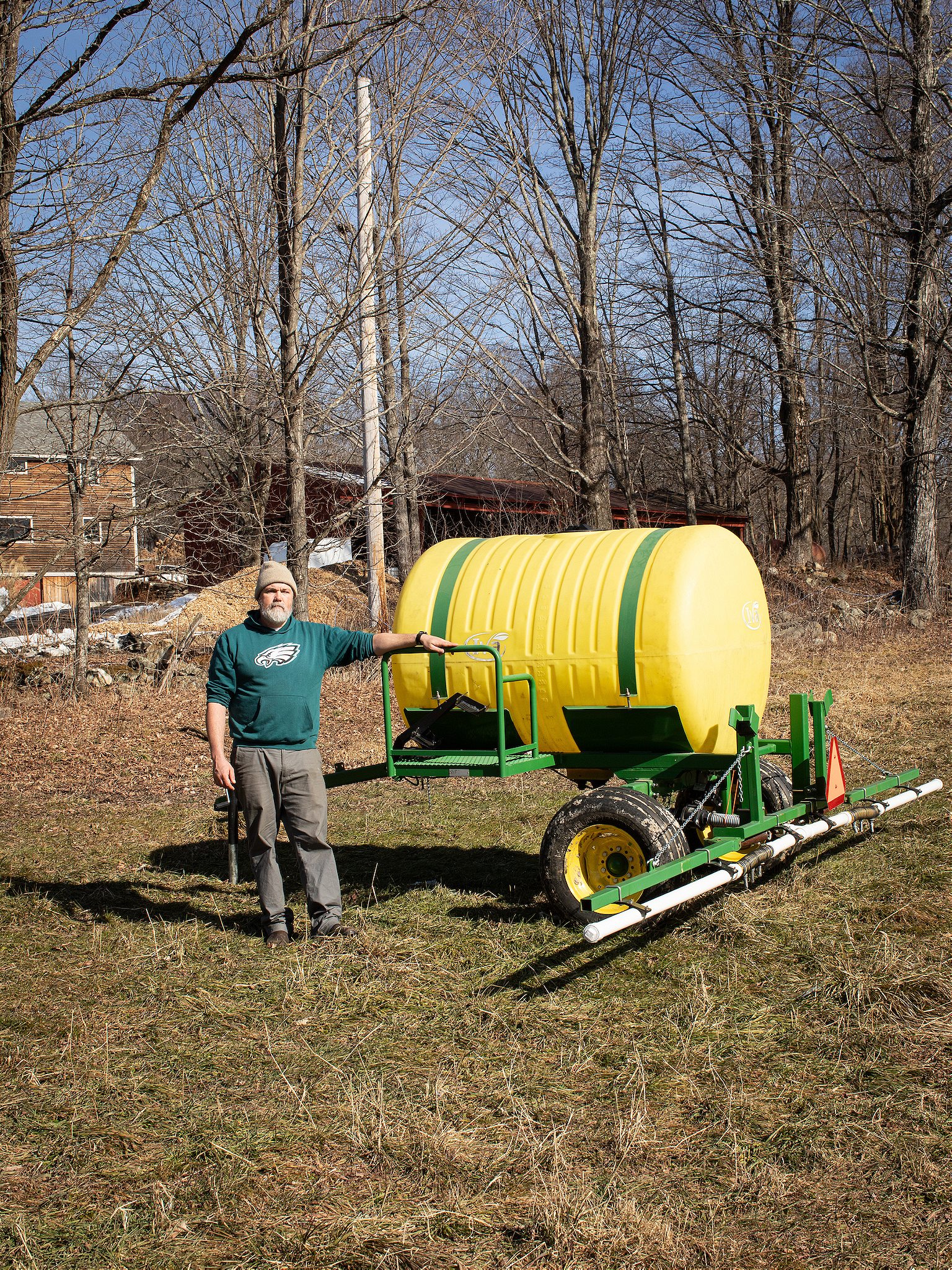
Hoskins’ fifty cows are in the barn on this frigid January afternoon. But, come spring, they’ll be out on pasture, fattening up on grass. And grass, to grow fast and build strong roots, needs plenty of nitrogen and phosphorus. Urine makes up less than 1% of the wastewater going into sewage treatment plants. But it contains about three-quarters of the nitrogen and half of the phosphorus in that wastewater.
Nitrogen and phosphorus are also associated with environmental damage. Many coastal regions, like the Gulf of Mexico, have developed dead zones because of excess nitrogen. Freshwater lakes worldwide are threatened by excess phosphorus that triggers nasty, fish-killing algal blooms. Nutrient pollution running down the Connecticut River washes into Long Island Sound, closing New York beaches. But what spells pollution in rivers and oceans can become valuable fertilizer on farms.
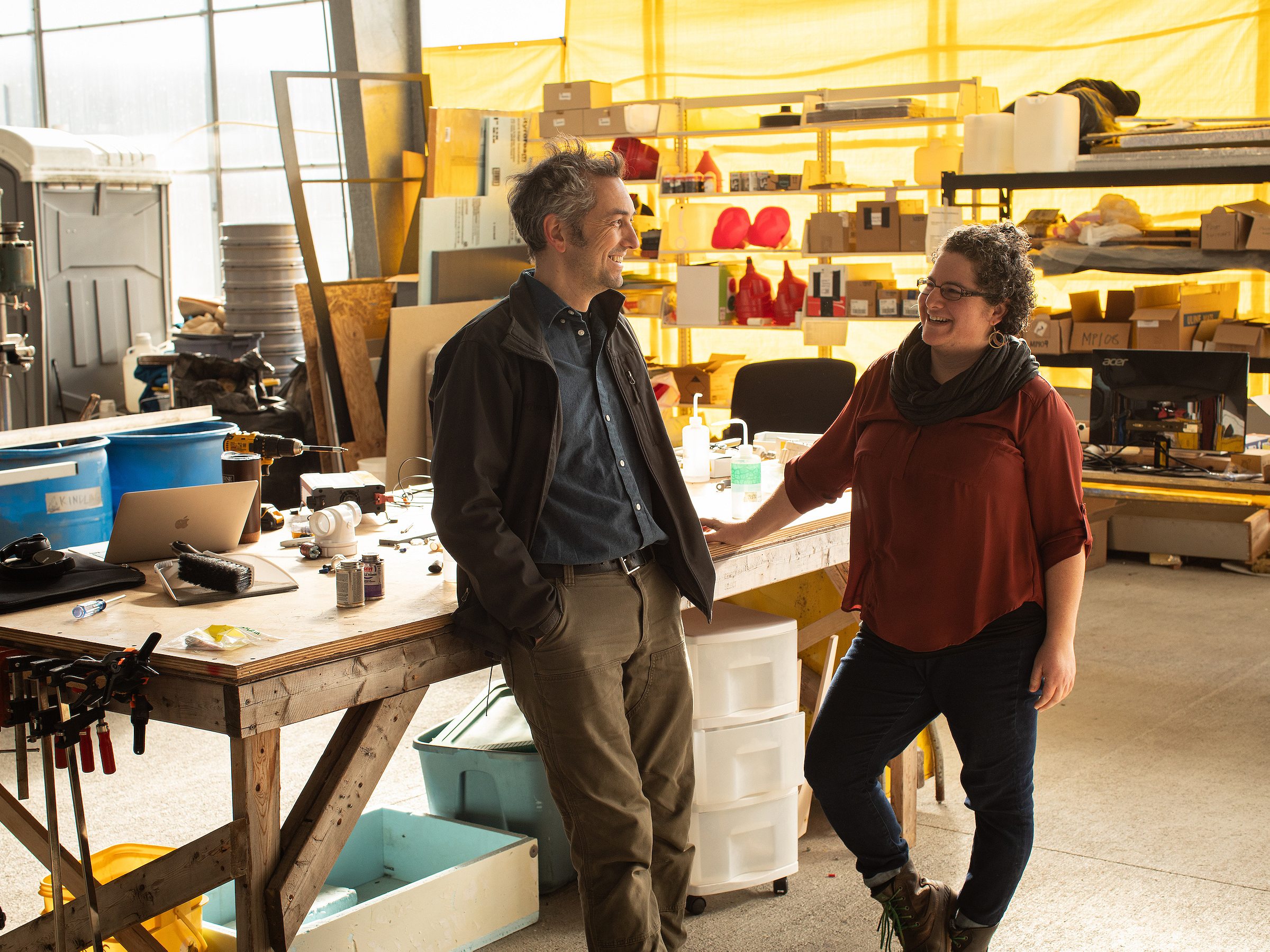
Nitrogen and phosphorus pollution“is just a resource in the wrong place,” says Jamina Shupack, the executive director of Rich Earth Institute, a research and education organization based in Brattleboro. The institute is a few winding miles downhill from Hoskins’ farm, one of nine local farms working with Rich Earth. The organization provides each farm with sanitized urine and conducts research studies in their fields. With careful manure management, rotational grazing—and regular deliveries from Rich Earth’s appropriately yellow truck—“we’re not purchasing any chemical fertilizer anymore,” Hoskins says. “We’ve ceased that entirely.”
To make food from sunlight, all plants need nitrogen and phosphorus. Grass for animals and many agricultural plants require huge amounts of these two nutrients. Much of the industrial fertilizer used around the world comes from phosphorus mines in Morocco and other countries and from fixing nitrogen out of the air using vast inputs of fossil fuels. (A study in 2022 found that nitrogen fertilizer production contributes almost 2 percent of global greenhouse gas emissions, about the same as aviation.) It then takes a one-way trip from factory to farm to food to flushing. “We’d like to make that straight line into a loop, capturing the nutrients before they enter the sewer,” Shupack says. “When we apply urine to a field, it’s an economically valuable fertilizer. It’s not a waste product anymore.”
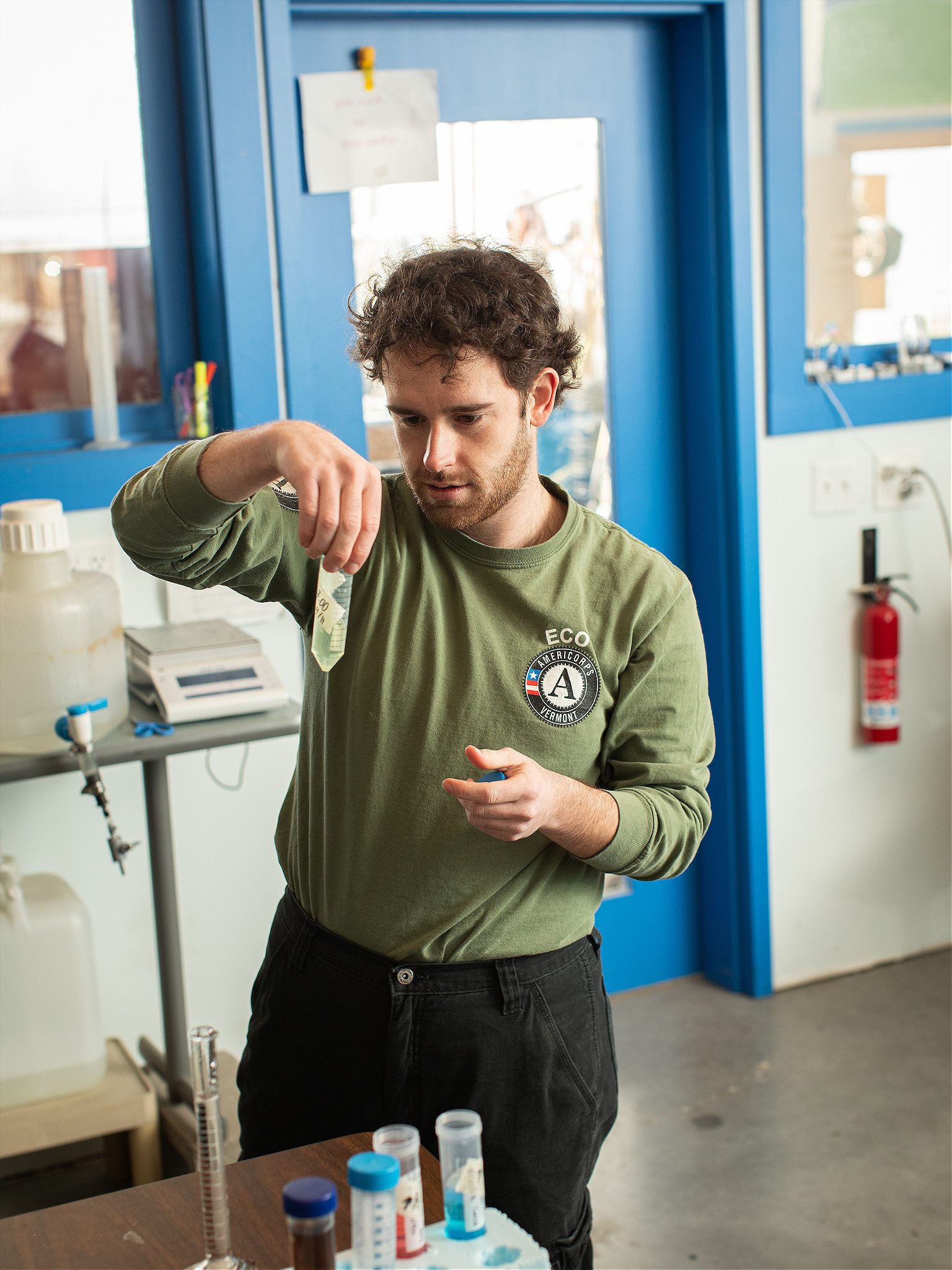
Inside his house, Hoskins pulls at his shaggy gray beard and looks out the window. “We live in a world of endless, complex problems and farming is an ongoing process of dealing with challenging issues. It’s not often that we have solutions right in front of us,” he says. He then laughs, almost to himself. “This one is obvious and easy. The science is clear. The biggest challenge is that some people think it’s gross.”
But not, apparently, the 244 people in Brattleboro who voluntarily divert their household’s urine into plastic tanks in their bathrooms or to piped ones in their basements—the first community-scale urine recycling project in the United States. Participants include Kevin O’Brien, who, once a week, carries urine from his house, sometimes on his bike, to a collection depot in the center of town. “This doesn’t happen everywhere—but why not?” he asks. When indoor plumbing was first brought into buildings in the 19th century, it was often viewed with a mix of curiosity and fear. Now it’s an unremarkable part of life in the developed world. “You just want me to collect my urine? Yeah, that makes sense,” O’Brien says. And at the Hermit Thrush Brewery in Brattleboro, a “peecycling” urinal drains into a tank in the basement, which Rich Earth then pumps out with their truck. Some of this urine may fertilize grains used to brew beer that will be downed at the brewery and… yield more urine. “How do we help ourselves be more a part of nature?” O’Brien asks. “How do we get back with the cycle?”
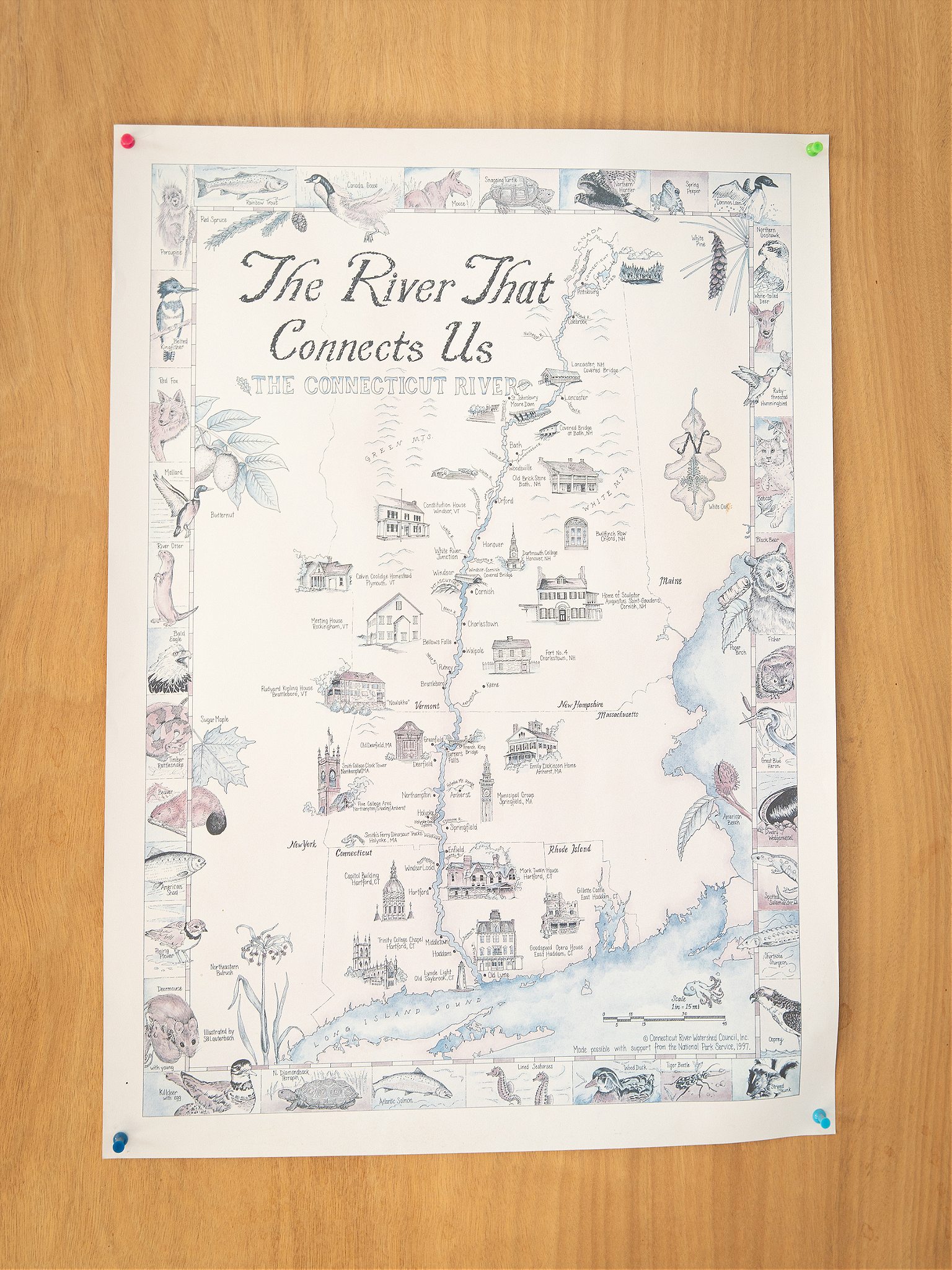
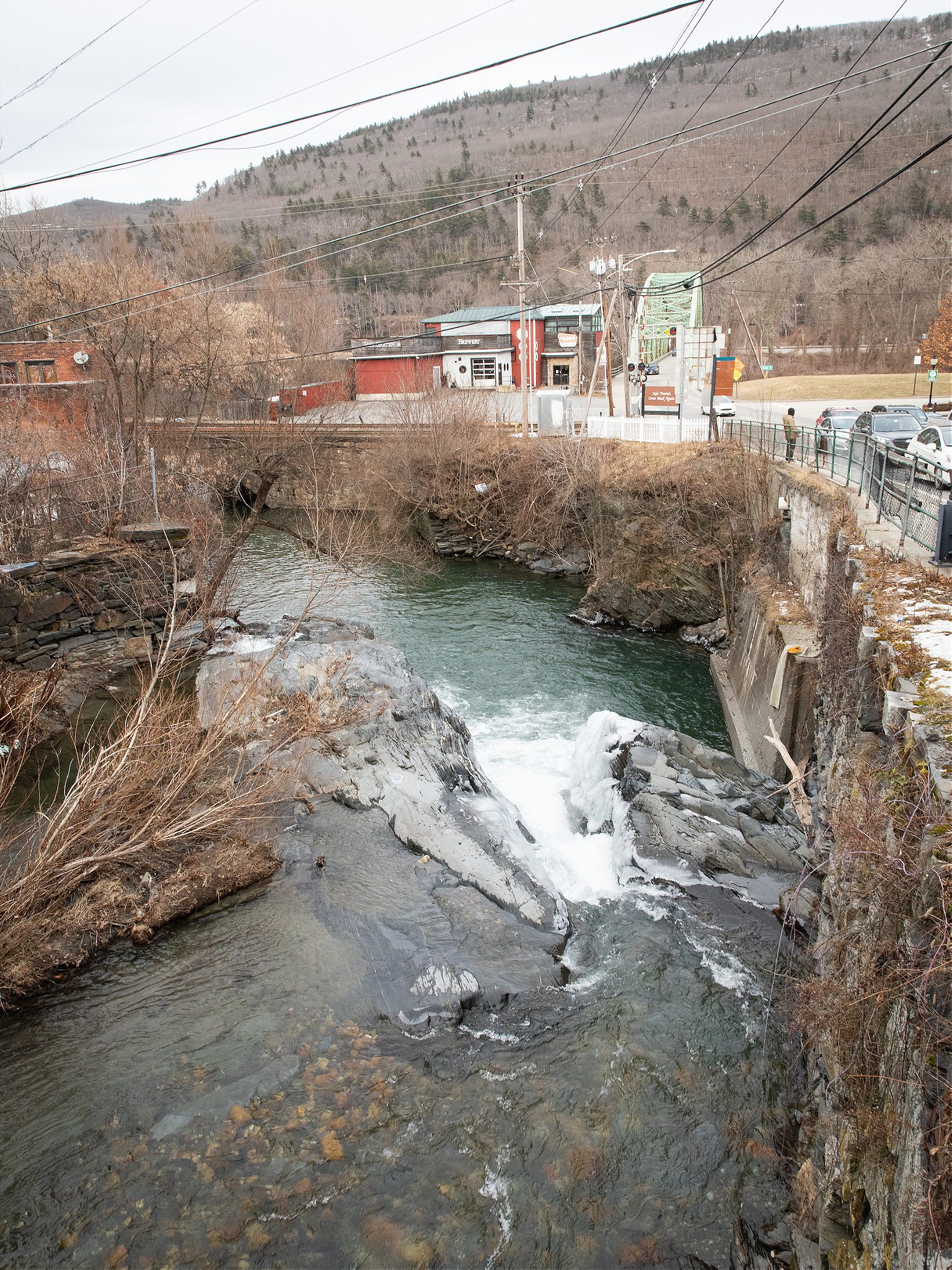
Abraham Noe-Hays and Kim Nace asked themselves the same thing in 2011, as they met to discuss their shared interest in composting toilets and human waste recycling. The following year, they founded Rich Earth Institute and collected 600 gallons of urine from 60 donors. The non-profit organization now holds an annual Urine Reclamation Summit, bringing together researchers from around the world. It also rents out urine-collecting port-a-johns for events, collecting thousands of gallons of urine. It is the largest such project in the United States.
Noe-Hays, now the research director of Rich Earth, smiles impishly as he asks if I need to pee. The best place to start a tour of the organization’s research facility is in the bathroom. There are four toilets to choose from—each an example, from low-tech to high-tech, of ways to collect urine. One is a simple funnel that drains into a five-gallon jug. This is Rich Earth’s “cubie,” a mini-urinal the organization sells to home gardeners, which many urine donors use. Another is a porcelain LAUFEN Save! toilet. This clever device diverts urine, flowing down the front of the bowl, into a separate pipe, flushing the feces as usual.
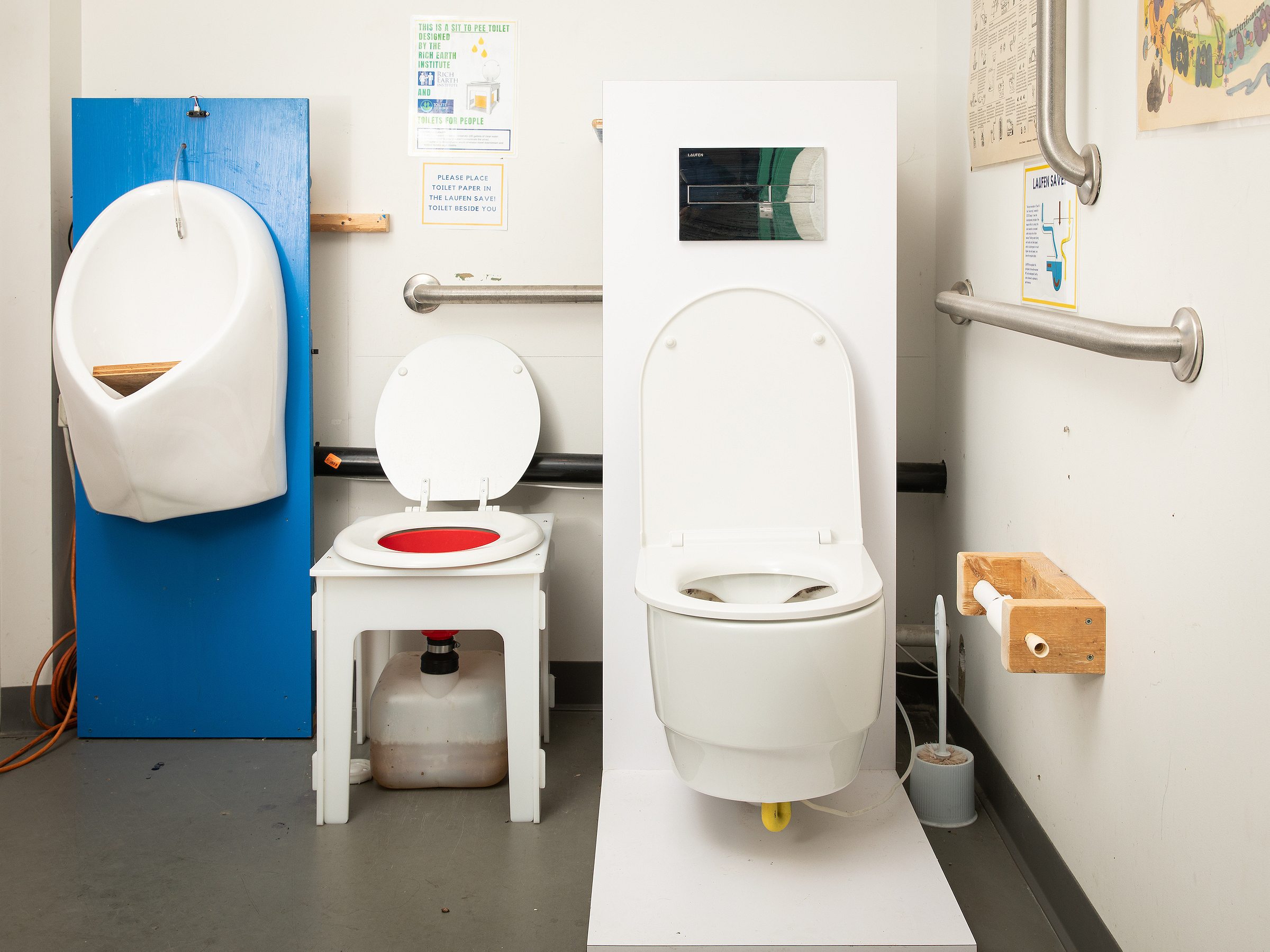
Whatever toilet a visitor chooses, their urine ends up in Rich Earth’s underground tank. “And from there it goes through this pasteurizer,” Noe-Hays says as the tour moves through the research facility’s wet room. He points to a five-foot-tall stainless-steel box on the wall with hoses attached. This device heats urine to 80° Celsius for 90 seconds, meeting EPA guidelines for killing pathogens. Designed and manufactured by Brightwater Tools, a for-profit company that Noe-Hays and other Rich Earth employees started in 2019, six pasteurizers have been sold to customers in several states. This is Rich Earth’s vision: demonstrate how urine recycling can succeed in Brattleboro while creating tools, training manuals, and understanding so that communities anywhere can develop their own human nutrient recycling projects. Working with academic researchers, including Nancy Love at the University of Michigan—and with funding from the US National Science Foundation, Department of Agriculture, and others—Rich Earth has tackled several technical challenges (like energy-efficient pasteurization) and regulatory hurdles (like outdated plumbing codes) that make urine recycling so uncommon.
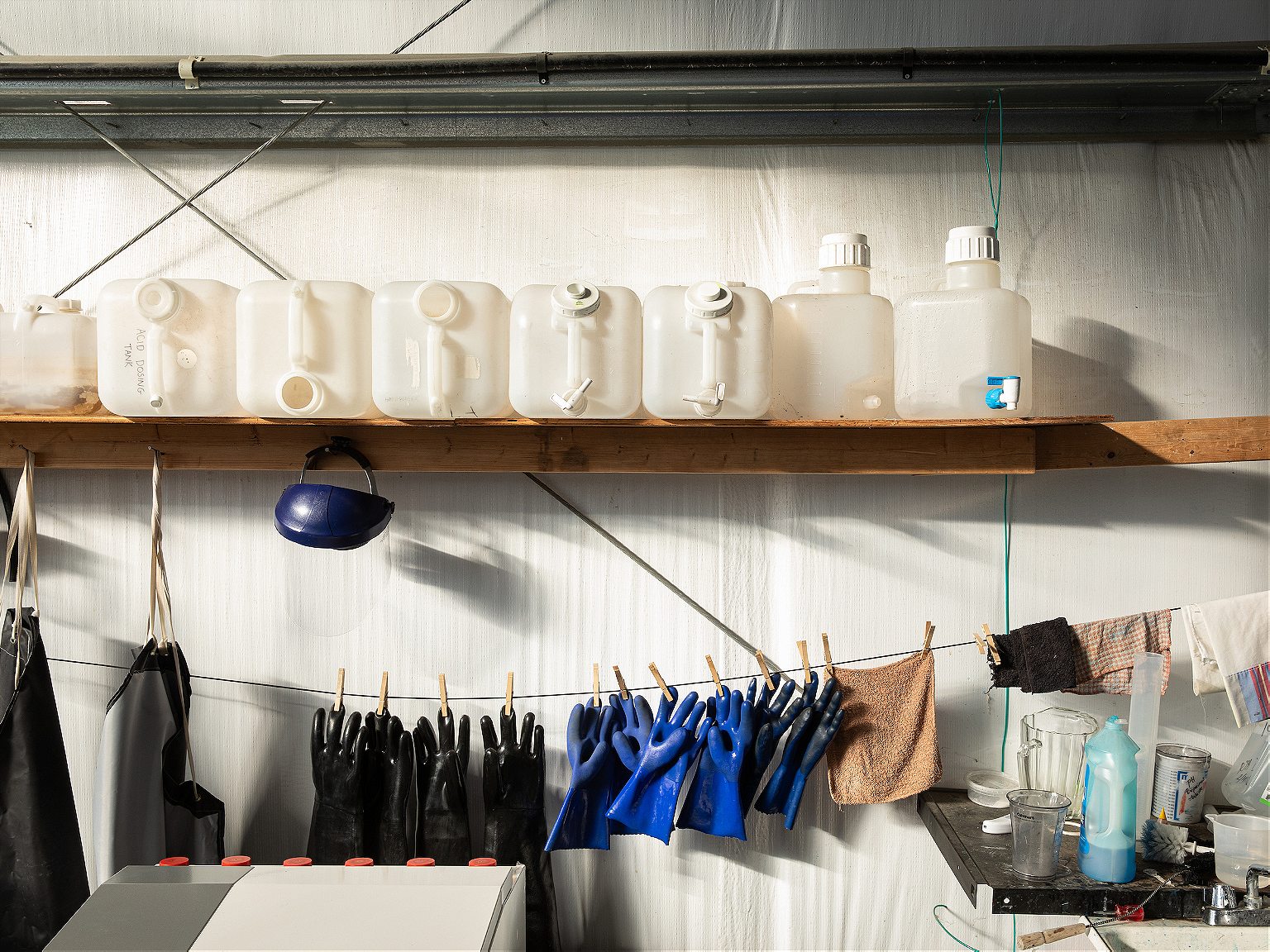
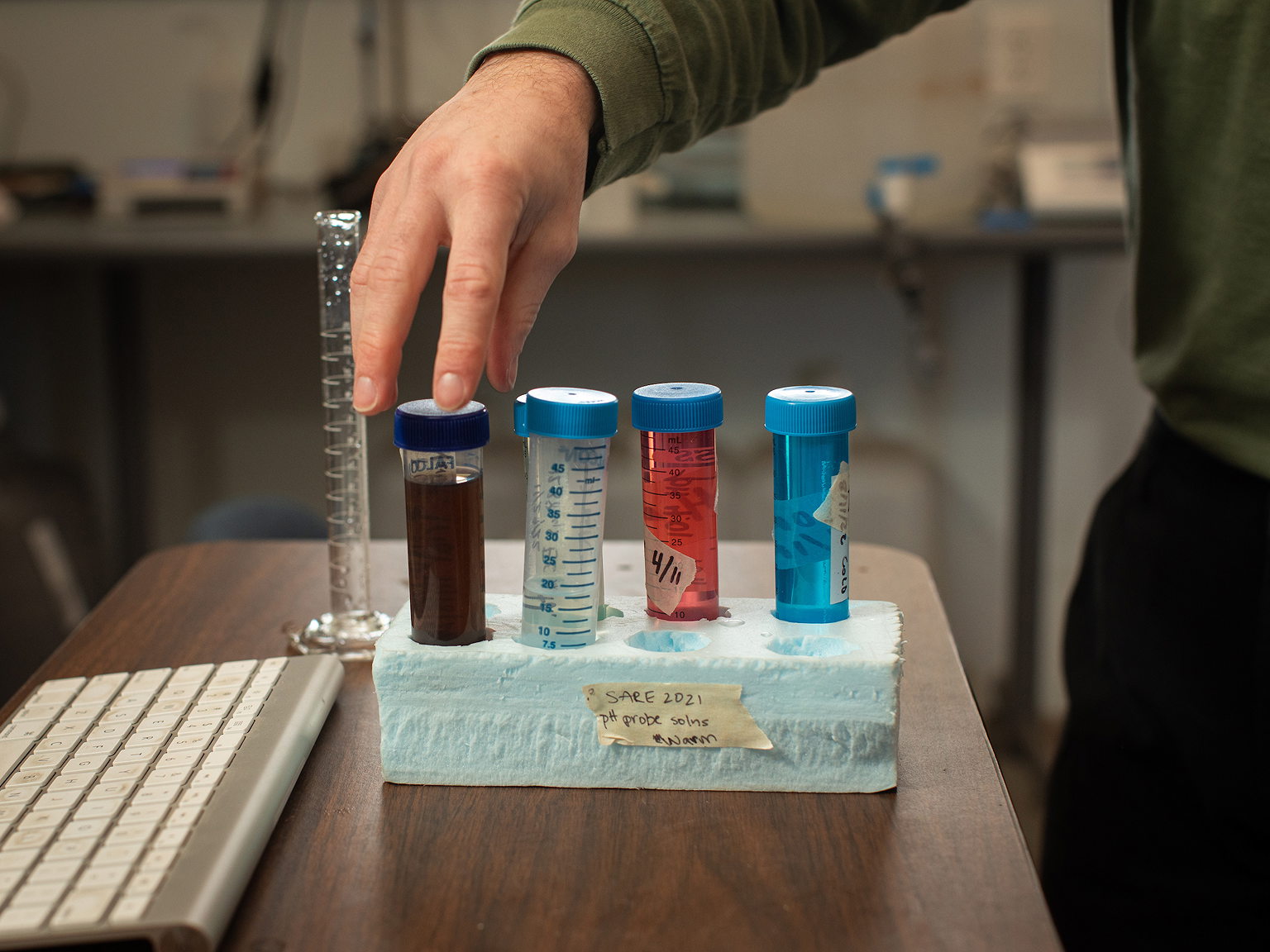
Urine is heavy to carry in a truck, but when repeatedly frozen and thawed, most of the water can be extracted, combined with greywater from sinks and showers, treated onsite, and reused. Water recycling is becoming an urgent challenge in arid places like the US Southwest.
Brightwater Tools is developing a building-scale system using their pasteurizer and a newly invented freeze concentrator (plus charcoal filtration to remove any pharmaceutical residues) that would yield concentrated, sanitized fertilizer for farms and water that could be reused on the premises for toilet flushing, laundry, and irrigation. Noe-Hays walks across the room to where his colleague works on a riveted steel box about the size of a bureau. A cable from a laptop and several hoses and wires disappear inside the box. On the front, a clear panel reveals ice near the top and then, in shades of brown near the bottom, a dense layer of urine. This is the freeze concentrator, a tool that the Vermont team plans to bring to market soon. In a few countries, including France, other organizations are also working to tackle this critical challenge: how to efficiently get water out of urine so that concentrated liquid or dried crystals can be easily transported.
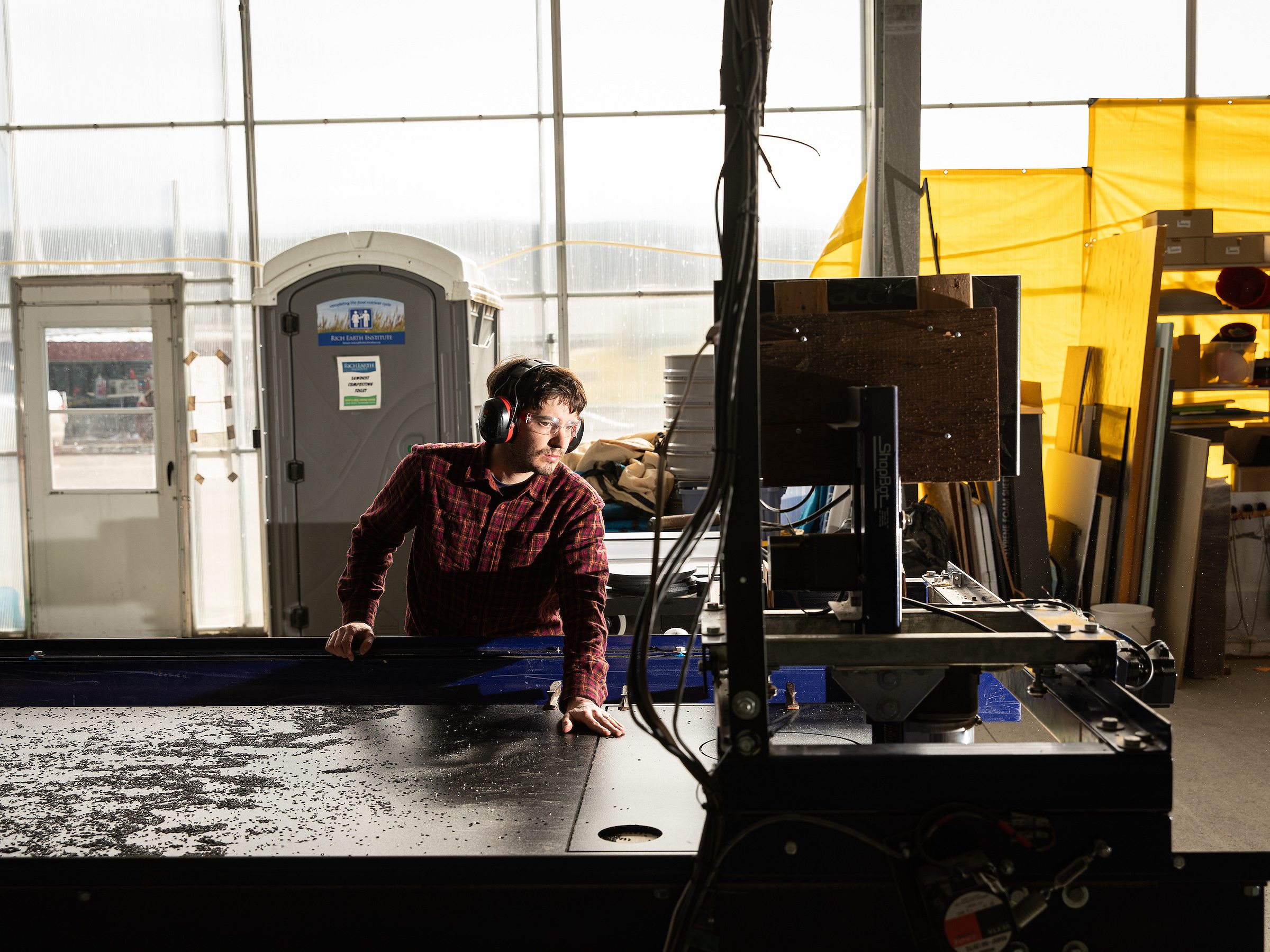
“Separating human waste at the source is powerful,” Noe-Hays says. “If you mix it all together, then, at the wastewater plant, you have this dilute, but very polluted, water. Every gallon has to be treated and each constituent removed through a different process until you, finally, have water that you can discharge.” That water may be clean if the treatment plant has a complex suite of technologies, but it’s very expensive and energy consuming. “We say, let’s just get most of the nutrients in one very small flow, before it goes there,” Noe-Hays says, “and avoid all that cost.”
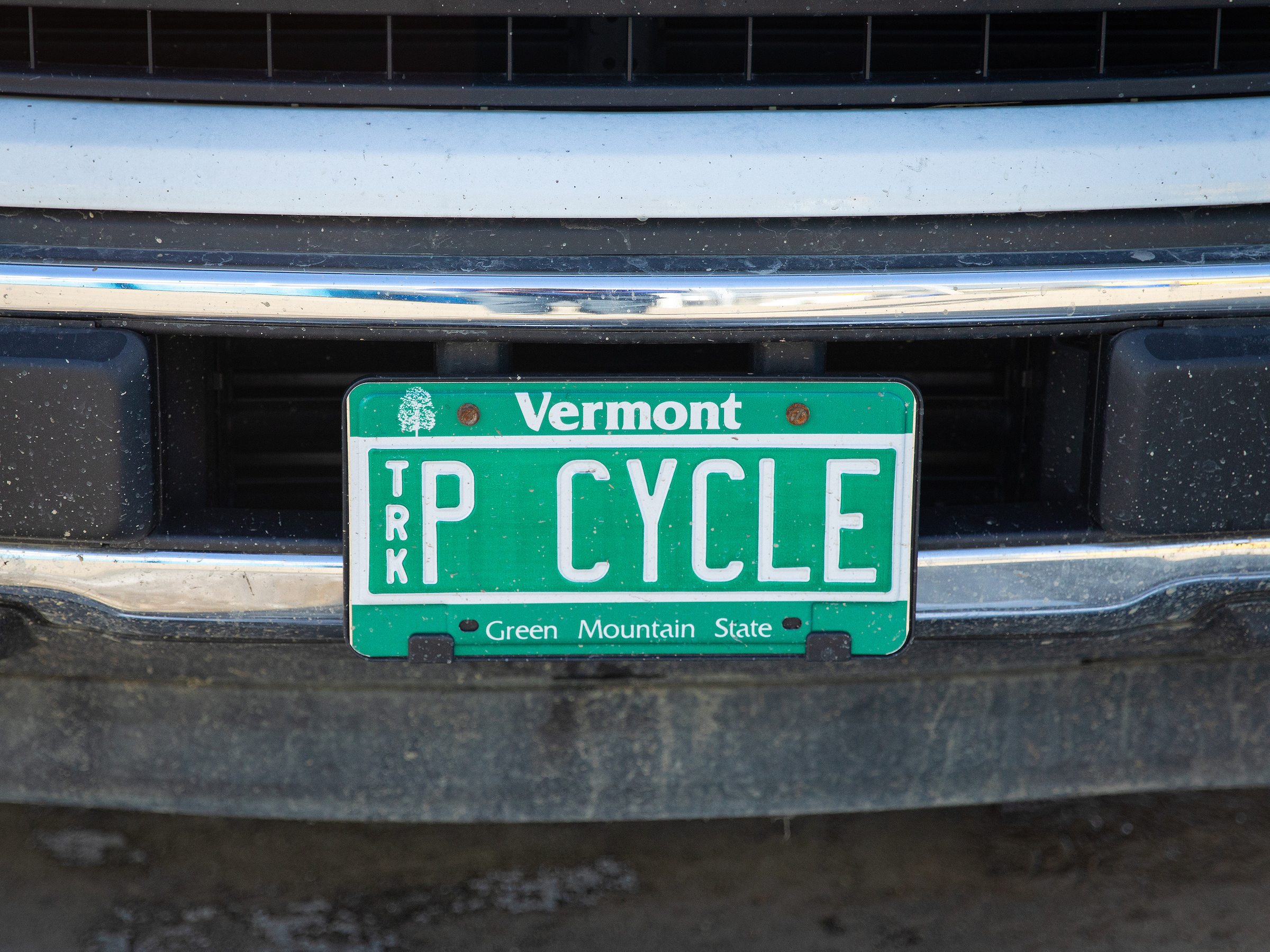
According to one estimate, humans produce enough urine to replace about one-quarter of fertilizers worldwide. If this urine could be used on farms, it would mean not having to mine, extract, and ship millions of tons of phosphorus and nitrogen. Rich Earth has recently opened a second urine depot in nearby Bellows Falls, Vermont; provided expertise for a new community-scale urine recycling initiative in Cape Cod; and answered questions from curious potential peecyclers around the globe. “When they think about it, and get past the yuck factor,” says Shupack, “most people understand.”